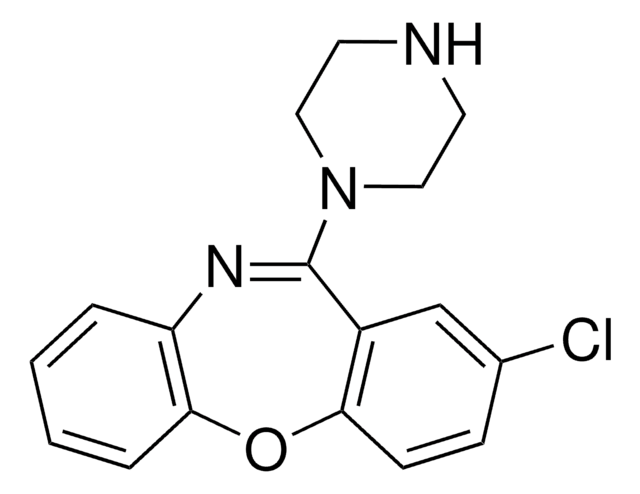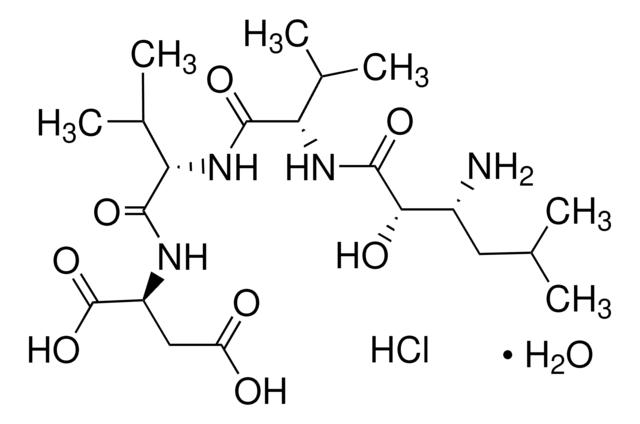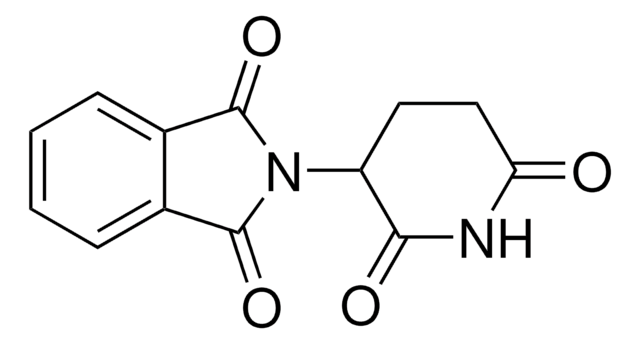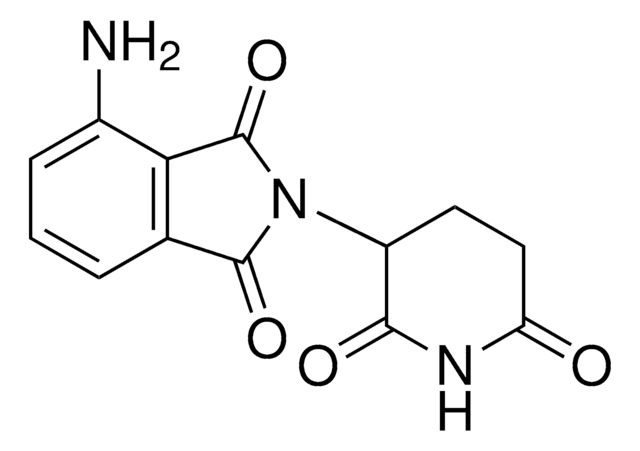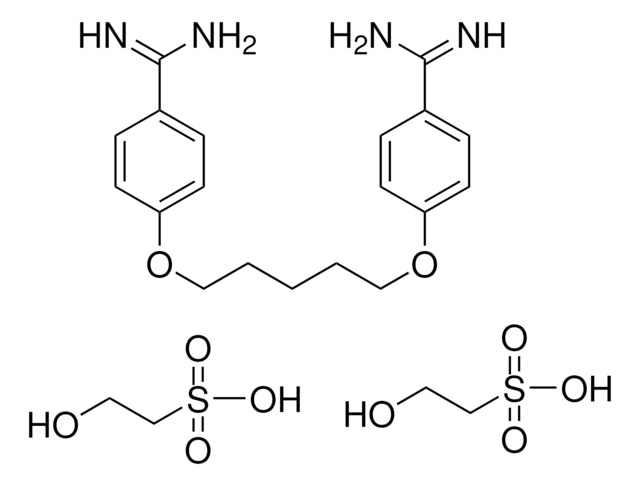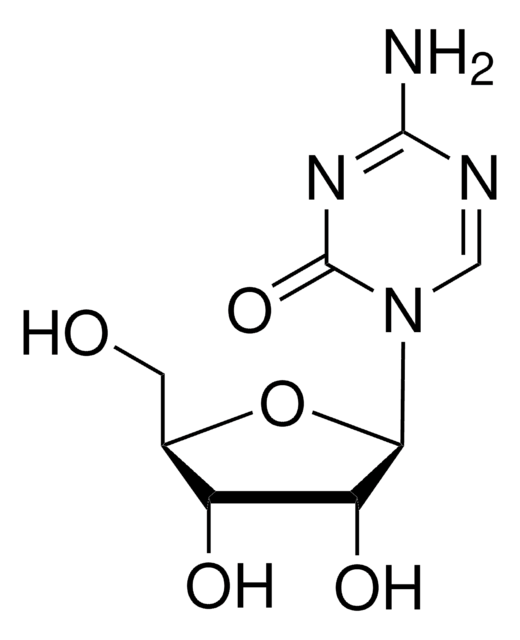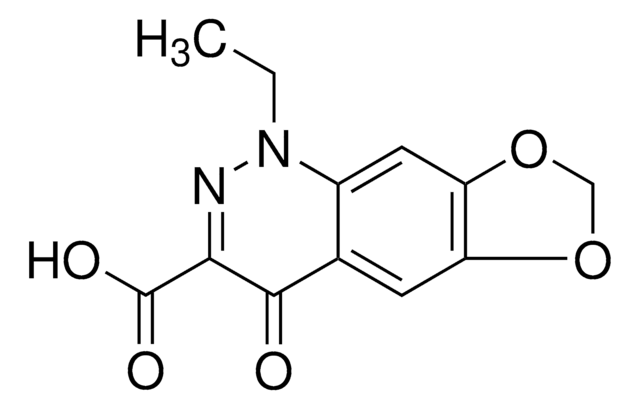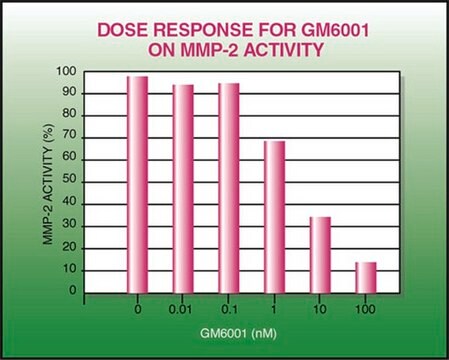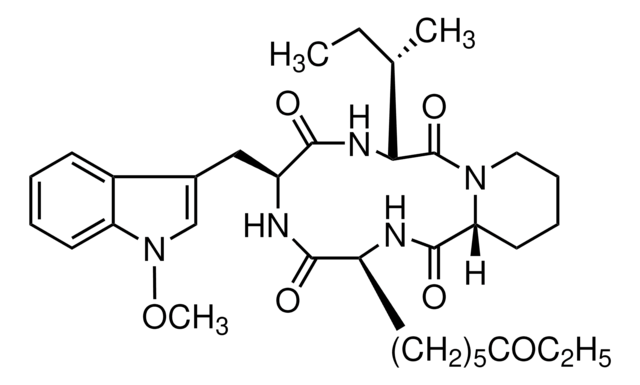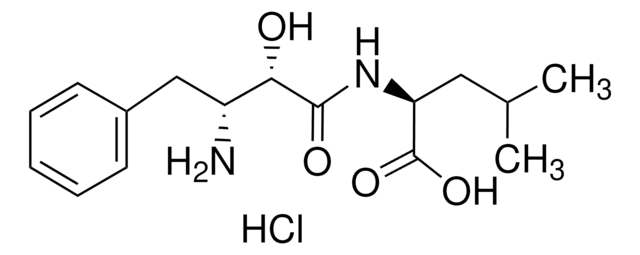A6671
Actinonin
≥98% (TLC), powder, leucine aminopeptidase inhibitor
Synonyme(s) :
3-[[1-[(2-(Hydroxymethyl)-1-pyrrolidinyl)carbonyl]-2-methylpropyl]carbamoyl]octanohydroxamic acid
About This Item
Produits recommandés
product name
Actinonin,
Source biologique
synthetic (organic)
Niveau de qualité
Pureté
≥98% (TLC)
Forme
powder
Solubilité
ethanol: 50 mg/mL, clear, colorless
Spectre d'activité de l'antibiotique
Gram-negative bacteria
Gram-positive bacteria
Mode d’action
enzyme | inhibits
Température de stockage
−20°C
Chaîne SMILES
CCCCCC(CC(=O)NO)C(=O)NC(C(C)C)C(=O)N1CCCC1CO
InChI
1S/C19H35N3O5/c1-4-5-6-8-14(11-16(24)21-27)18(25)20-17(13(2)3)19(26)22-10-7-9-15(22)12-23/h13-15,17,23,27H,4-12H2,1-3H3,(H,20,25)(H,21,24)
Clé InChI
XJLATMLVMSFZBN-UHFFFAOYSA-N
Informations sur le gène
human ... ANPEP(290) , DPP4(1803) , ECE1(1889) , LAP3(51056)
Vous recherchez des produits similaires ? Visite Guide de comparaison des produits
Description générale
Application
Actions biochimiques/physiologiques
Caractéristiques et avantages
Code de la classe de stockage
11 - Combustible Solids
Classe de danger pour l'eau (WGK)
WGK 3
Point d'éclair (°F)
Not applicable
Point d'éclair (°C)
Not applicable
Équipement de protection individuelle
Eyeshields, Gloves, type N95 (US)
Certificats d'analyse (COA)
Recherchez un Certificats d'analyse (COA) en saisissant le numéro de lot du produit. Les numéros de lot figurent sur l'étiquette du produit après les mots "Lot" ou "Batch".
Déjà en possession de ce produit ?
Retrouvez la documentation relative aux produits que vous avez récemment achetés dans la Bibliothèque de documents.
Les clients ont également consulté
Notre équipe de scientifiques dispose d'une expérience dans tous les secteurs de la recherche, notamment en sciences de la vie, science des matériaux, synthèse chimique, chromatographie, analyse et dans de nombreux autres domaines..
Contacter notre Service technique